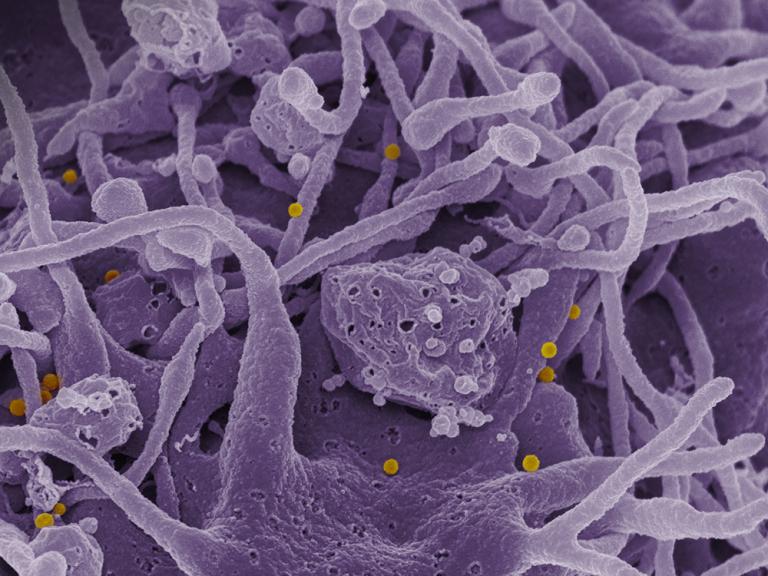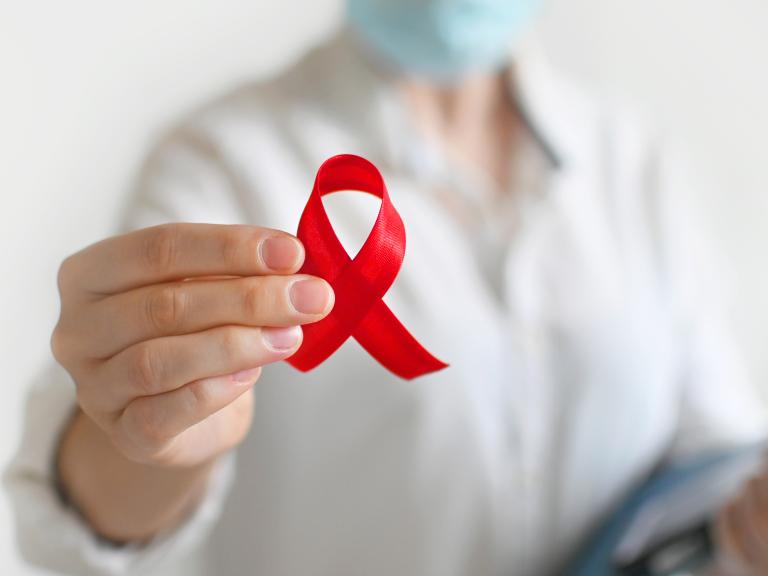Search for a Program or Network
Programs and networks help to increase collaboration, break down silos, and share information and data by connecting researchers to each other, to institutions, both public and private, and to the general scientific community.
This section contains information on a variety of types of programs or networks, including those specifically run by NIAID that interact with the broader scientific community and collaborations that NIAID participates in, such as collaborations across government agencies, public-private partnerships, cooperative agreements, and consortiums.
A research program or network is an “umbrella” organizing group, internal or external to NIAID, whose responsibilities include conducting, overseeing, and at times funding research or offering non-monetary support for research. Most of these programs/networks offer services and other resources to the scientific community.
The breadth and depth of NIAID supported programs and networks speaks to the extensive infrastructure that NIAID supports to advance research in a dynamic world impacted by emerging and reemerging diseases.
Highlighted Programs & Networks

New Awards for Pandemic Preparedness Research
The Research and Development of Vaccines and Monoclonal Antibodies for Pandemic Preparedness (ReVAMPP) network conducts basic and translational research on representative viruses within a specific virus family, with the goal of developing effective vaccines and monoclonal antibodies for other viruses within that family.

NIAID Seeks Researcher Feedback About HIV Clinical Research Enterprise
NIAID supports four research networks as part of its HIV clinical research enterprise. Every seven years, the Institute engages research partners, community representatives, and other public health stakeholders in a multidisciplinary evaluation of network progress toward short- and long-term scientific goals.

Learn About NIAID and NIH Data Sharing Policies
Data sharing helps advance research on infectious and immune-mediated diseases, and it is required of most NIAID researchers. Learn about the policies that govern data sharing and find guidance on when and where to share scientific data.
How are Programs & Networks Funded?
Networks and programs are funded through a variety of mechanisms varying from funding provided by a grant or contract, collaborations supported through private-public partnerships, defined per partnership, or groups supported wholly by NIAID or NIH, such as various Communities of Practice (COPS) or Special Interest Groups (SIGS).
How do Resources for Researchers Relate to Programs & Networks?
While NIAID supports the research community via funding through grants and other mechanisms, many NIAID networks and programs also provides access to certain resources such as preclinical services, assays, imaging, and sequencing.
How are Programs & Networks Related to Areas of Research at NIAID?
Networks and programs may tie to specific diseases and conditions (for example HIV/AIDS, influenza, or food allergy) or they may support research that is broader in nature, such as vaccines, antimicrobial resistance or immune system research.
Related Information for Researchers
Resources for Researchers
In addition to monetary funding, NIAID or NIAID-funded groups provide services that are available to the research community to advance their scientific pursuits. You may request services if you are an investigator in academia, a nonprofit organization, industry, or government in the United States or worldwide. You need not be a grantee of NIAID or another National Institutes of Health Institute or Center.
Research Funding
NIAID supports research at external academic and research institutions through funding opportunities including grants, contracts, and cooperative agreements. In addition to targeted requests for proposals in response to initiatives, NIAID is always accepting researcher-initiated applications.


